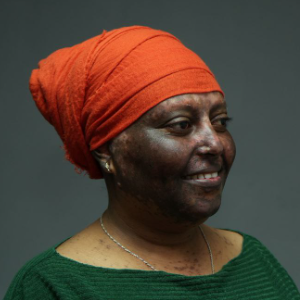Title : Beyond the mirror
Abstract:
This research offers a paent-expert perspecve on the profound psychological journey accompanying chronic, visible dermatoses. Moving beyond tradional clinical definions of "cure," this research invesgates the crical, yet oen unaddressed, process of psychosocial healing necessary for true wellness. As a researcher with a background in design who has navigated a crical skin condion, the speaker’s personal experience informs a unique qualitave analysis into the core challenges of social sgma, self-esteem damage, and the disconnecon between inner identy and outer appearance. The central premise of the work is that the skin acts as a "Mind-Skin Canvas": the inner state of the individual profoundly reflects and is reflected by the visible state of the skin. While clinical treatments address the physical symptoms, the emoonal and psychological residue, referred to here as the psychosocial 'scar,' requires dedicated, non-medical intervenon. This study employs a qualitave methodology centered on self-narrave analysis and the concept of "Self-Portraiture" (used both metaphorically and as a reflecve pracce). Key findings detail the mechanisms by which perceived sgma leads to internalized shame and social appearance anxiety. The research then illuminates a pathway for recovery focused on two key, non-clinical intervenons: Self-Narrave Reframing (shiing identy from "paent" to "expert survivor") and Therapeuc Inner-Care (the adopon of mindful, daily aesthec rituals as a deliberate strategy to re-engineer self-percepon and rebuild self-acceptance). Crucially, this research examines the role of the professional and governmental support systems. It analyzes how the acceptance of doctors, deficiencies in healthcare team empathy, and the pracce of dehumanizing the paent narrave can exacerbate social sgma and self-shame. The study advocates for an urgent need to integrate Psychodermatology frameworks combining psychological support with dermatological treatment into standard clinical pracce to create a truly holisc care model. Finally, the presentaon addresses the necessity of macro-level societal change. It argues that government health policies must acknowledge the profound impact of skin condions on Quality of Life and producvity, regardless of disability classificaon. It calls for policy-level support for public educaon programs to challenge rigid beauty standards in media and ensure that individuals affected by visible dermatoses have equitable access to psychosocial resources. This work champions the Paent Expert voice, asserng that lasng healing is achieved through a collaborave effort where the system supports the individual to move their self-portrait beyond the mirror of the physical condion.



